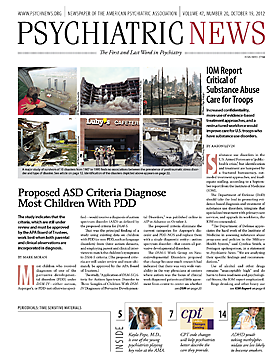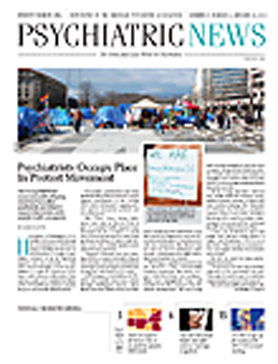Moving from a high-poverty to lower-poverty neighborhood leads to long-term improvements in adult physical and mental health and subjective well-being, but has no effect on economic self-sufficiency, according to a report that appeared last month in Science.
Researchers at the Institute for Social Research at the University of Michigan analyzed long-term effects on a range of variables associated with an ambitious antipoverty initiative undertaken in the 1990s to determine if the opportunity to move to less-poverty-stricken neighborhoods would improve economic well-being and self-sufficiency among poor people.
Their findings regarding objective measures of economic well-being were disappointing—families that moved were not significantly better off. But the researchers found something else: families that moved to somewhat more affluent neighborhoods had better physical and mental health and reported being happier on a measure of subjective well-being.
“We find sizable positive effects of moving from a more-distressed to a less-distressed neighborhood on social well-being, a measure that represents a comprehensive assessment by the participants themselves of the extent to which their lives have been affected,” the researchers stated. “Our results suggest that living in distressed neighborhoods has more important adverse impacts, and escaping from such neighborhoods has more important positive effects, on the well-being of low-income adults than was revealed by previous… studies of neighborhood effects that focused on traditional measures of socio-economic and health outcomes.”
From 1994 to 1998, the Moving to Opportunity (MTO) program enrolled 4,604 public-housing families living in high-poverty neighborhoods in five cities: Baltimore, Boston, Chicago, Los Angeles, and New York. Families were randomized into three groups: a group that received housing vouchers subsidizing private-market rents but that could only be used in census tracts with 1990 poverty rates below 10 percent; a traditional voucher group that received regular housing vouchers without any relocation constraint; and a control group, which received no assistance through the MTO.
To measure long-term effects of changing neighborhoods on adults in the MTO demonstration, the researchers collected in-person data from participants 10 to 15 years after random assignment. They analyzed neighborhood conditions and their effects on objective measures of well-being—economic self-sufficiency, physical health, and mental health.
They also examined a self-reported measure of comprehensive subjective well-being based on responses to the following question from the General Social Survey that was included in the long-term follow-up survey of MTO adults: “Taken all together, how would you say things are these days—would you say that you are very happy, pretty happy, or not too happy?”
The researchers found that the MTO program did generate sizable and sustained differences in average neighborhood conditions of the individuals across randomly assigned groups. One year after random assignment, the average control group family was living in a census tract with a poverty rate of 50 percent, compared with 34 percent for the average family assigned to receive relocation vouchers.
However, the effects of moving were not statistically significant on economic outcomes for adults in MTO households 10 to 15 years after moving. But the effects on a broad range of physical health measures were in the direction of better health, though not quite statistically significant, while effects on mental health were marginally significant.
Meanwhile, the strongest beneficial effect was on measures of subjective well-being, with the offer to move to a less-disadvantaged area increasing subjective well-being by an amount equal to the gap in subjective well-being between people whose annual incomes differ by $13,000.
Community psychiatrist Ken Thompson, M.D., who reviewed the report, said the study demonstrates the effects of social environment on mental health. “We have been so focused on what happens inside people’s heads, in their brains, that we have tended to neglect how the environment shapes how people feel about themselves,” Thompson told Psychiatric News. “For this population of very poor African-American or Latino people, even a relatively modest change in circumstance produced a significant change in how they feel about their own well-being. That has real implications for public policy,” he said.
Thompson said the results should not be surprising, and he believes they are largely related to the importance of a sense of physical safety, especially for women. “Moving into neighborhoods that are less subject to violence and criminal activity makes a big difference for women who are poor,” he said.
He added that psychiatry needs to pay attention to the findings and how they might be incorporated into public-policy advocacy as well as clinical treatment. “How can we foster a dialogue with the social scientists who do this kind of research, as well as with the people who are the subjects of this research?” he asked.


